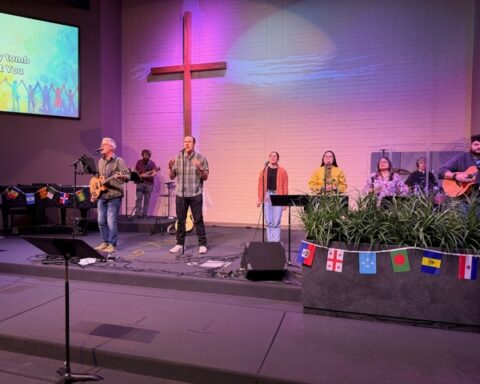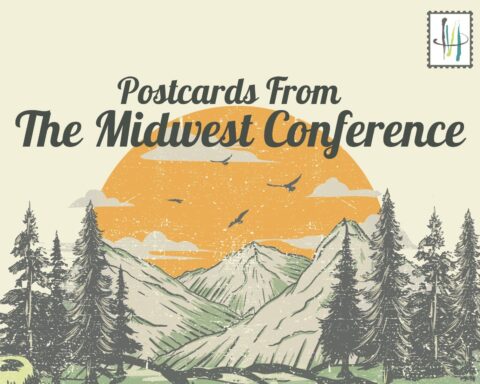Last week, while substitute teaching in an elementary class, the students asked me to play a song while we cleaned up the classroom. One student shouted, “Play ‘What Was I Made For?'” and the rest of the kids agreed. So, I played the Barbie movie theme song, and 12 boys and girls sang along as they cleaned. This experience got me thinking about the importance of knowing our purpose and who we are.
Defining Moments and Affirmations
Throughout our lives, there are moments when our calling is affirmed. These moments shape who we are and how we navigate the world.
One colleague recently shared a childhood memory of being invited to his grandparents’ house for the day. One-by-one, his grandpa took each of his grandkids for a walk on the farm. As they passed the fruit trees and crops, his grandfather told the children how he had been praying specifically for each of them and he emphasized their God-given callings. This interaction left a lasting impact on my colleague, as it was one of his grandfather’s final conversations before passing away.
This reminded me of my own moments of affirmation, such as when my grandmother prayed over me, passing on the responsibility to continue the good work that God had started in our family.
These experiences show the power of affirming others and the weight that our words can carry.
Peter’s Mountaintop Faith Moment
In Matthew 16:13-20, we see Peter having a defining moment of faith. Jesus asks his disciples, “Who do people say the Son of Man is?” After hearing various responses, Jesus asks Peter, “But what about you? Who do you say I am?” Peter confidently answers, “You are the Messiah, the Son of the Living God.” Jesus acknowledges Peter’s faith and promises to build his church upon this rock.
Peter’s declaration reminds us of the power of speaking our faith. When we have the courage to say, “I believe,” it not only strengthens our own conviction but also has a ripple effect on those around us.
Jesus instructs his disciples not to reveal his true identity to others yet, but for us, we are called to go into the world and share the good news about Jesus.
Beliefs and Convictions
What do we believe about Jesus? Peter had the Hebrew Bible, his personal experiences and the Holy Spirit speaking to him. Similarly, we have the New Testament narrative in addition to our own encounters with God and the Holy Spirit. When life gets rocky, it is these mountaintop moments and our deepest convictions planted by the Holy Spirit that can sustain us.
Rev. Sarah Speed highlights the importance of sharing our beliefs. She says,“Many of us are hesitant to talk about our faith, but I think conviction matters. Do you believe in forgiveness? Do you believe love has the power to change lives? Do you think the world is in need of grace? If so, I want to know about it. Tell me what you believe. Ambiguity can lead to apathy, so tell me what you truly believe. That can have a ripple effect.”
While belief should not be a prerequisite for belonging in a church community, it is still important to develop our beliefs and have statements of faith. Peter’s mountaintop moment exemplifies the power of a clear belief in Jesus, which can shape our identity and purpose.
Your Identity and God’s Calling
Jesus’s response to Peter’s declaration is profound. He says, “You are Peter, and on this rock, I will build my church. The gates of Hades will not overcome it. I will give you the keys of the kingdom of heaven, and whatever you bind on Earth will be bound in heaven, and whatever you loose on Earth will be loosed in heaven.” These words affirm Peter’s identity and calling.
Just as Peter received affirmation from Jesus, we also need people who actively listen to the Holy Spirit to speak calling, affirmation and encouragement into our lives. Our beliefs about ourselves matter, and mentorship and discipleship can play a significant role in shaping those beliefs. Speaking life and affirmation to others can have a profound impact.
Overcoming Labels and Embracing Blessings
Peter’s journey was not without challenges. He was often portrayed as impulsive and outspoken. He denied Jesus, rebuked him and even doubted while walking on water. However, Jesus never labeled him as a troubled child. Instead, Jesus blessed him, saying, “Blessed are you.” These words reminded Peter of his calling and affirmed his worth.
Similarly, each of us has the opportunity to affirm others and ourselves. We can choose to speak life into those around us, encouraging them to embrace their God-given gifts and callings. Our words and beliefs about ourselves and others matter. They can shape the trajectory of our lives and the lives of those we encounter.
Conclusion
Discovering our purpose and understanding who we are is a lifelong journey. We can find joy and fulfillment when we embrace our true identity and live according to the calling God has placed on our lives.
So, I leave you with these questions: Who are you, and what were you made for? Take a moment to reflect on the ways God has been at work in your life. Partner with the Holy Spirit to define your beliefs and convictions. Embrace your identity and calling, and remember the power of speaking life and affirmation into the lives of others.










